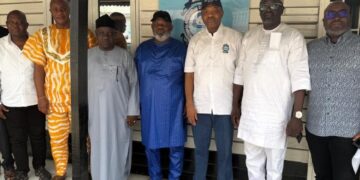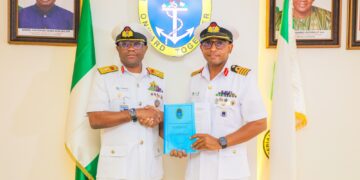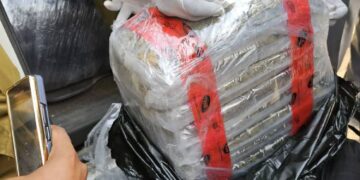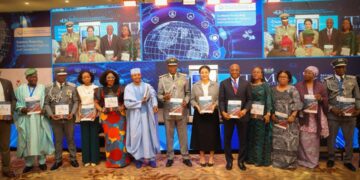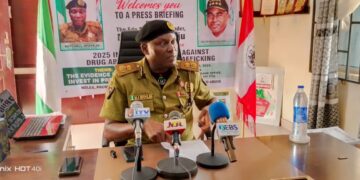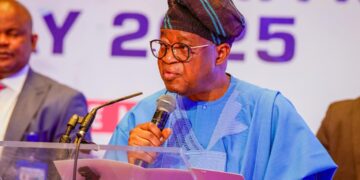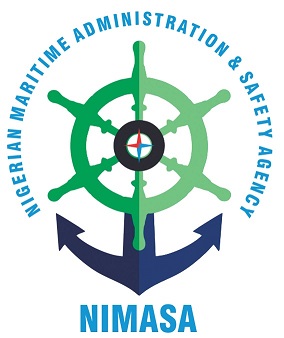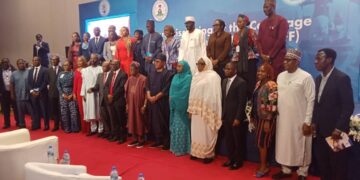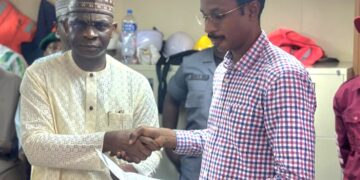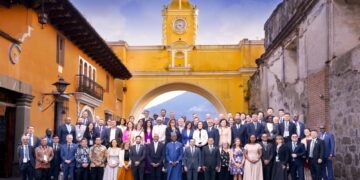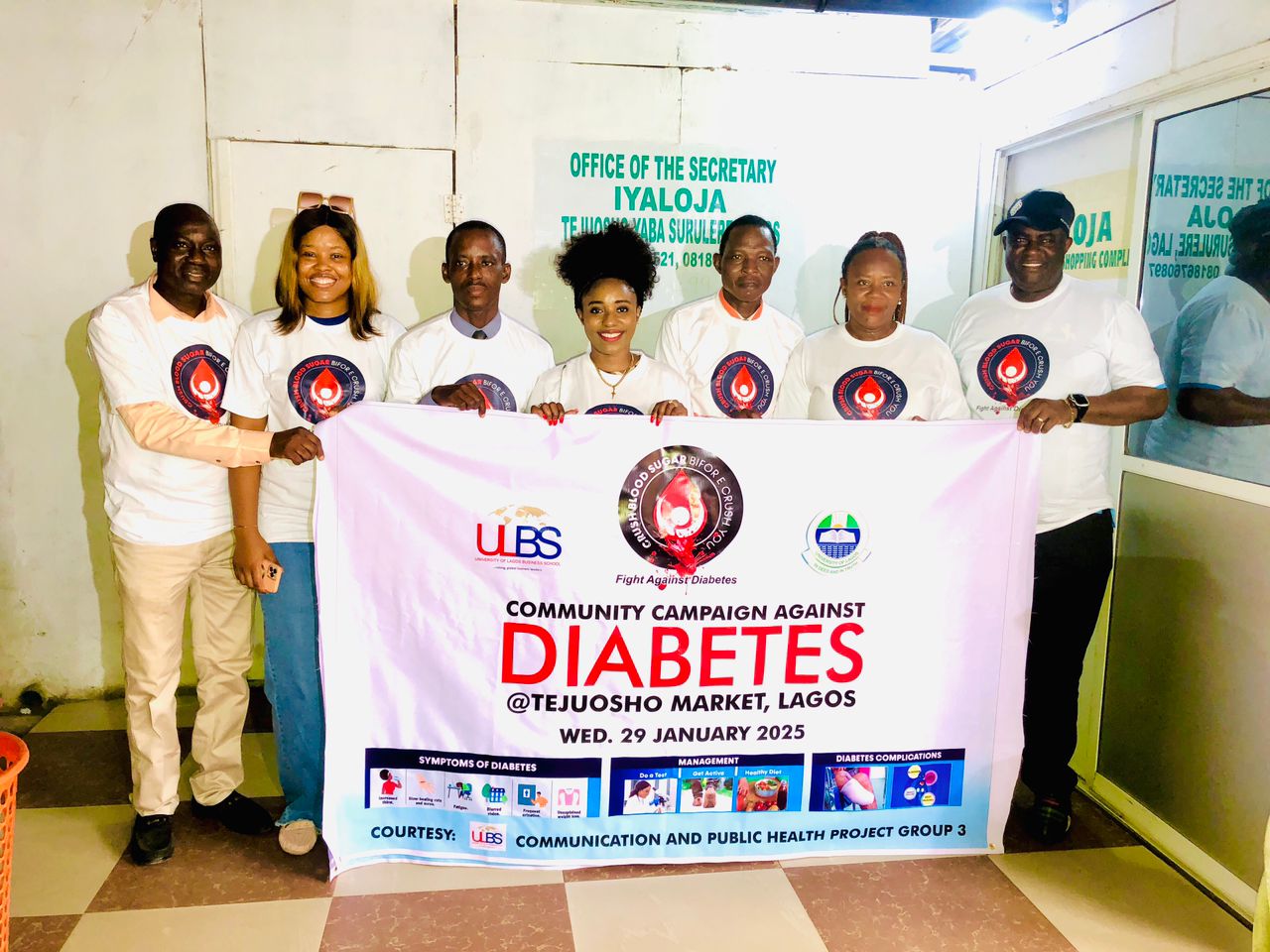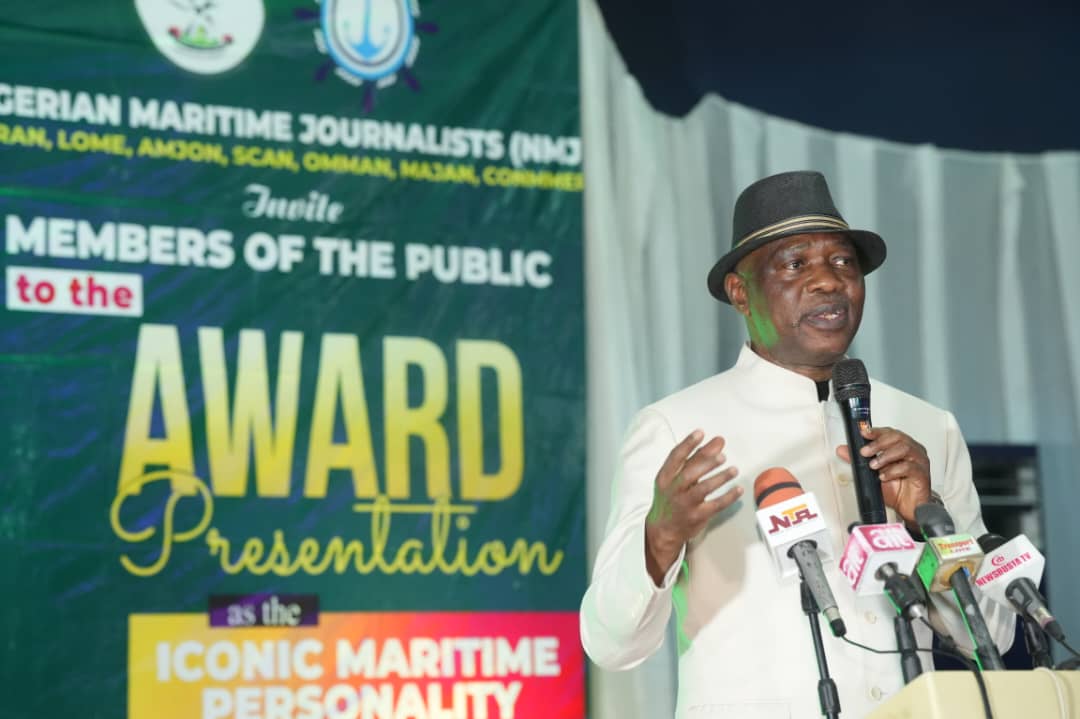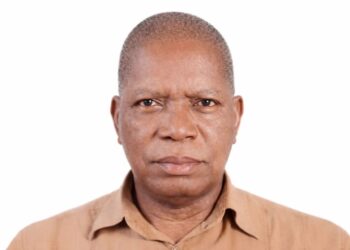“Crush blood sugar befor e crush you” was the theme of the message for a community-based diabetes awareness campaign developed in pidgin English language to engage traders at the popular Tejuosho Main Market in Yaba, Lagos.
The slogan “crush blood sugar befor e crush you,” means you should take action against blood sugar spikes before it destroys your health.
Organised by Group 3 of the Communication and Public Health project of the University of Lagos Business School (ULBS), Akoka, Lagos, the programme, which took place on Wednesday the 29th day of January, emphasized the need for regular blood sugar screening and healthy lifestyle including healthy diets, being active and avoidance of smoking and alcohol consumption.
The seven-man group, made up of predominantly medical doctors, also had a development communication specialist, who had earlier carried out a formative research on the target audience, with the support of the market leadership headed by the Iyaloja and her team.
Engaging with the traders in the campaign, the group explained what diabetes mellitus is and took time to educate the people on concerns that could further endanger people’s health if they failed to adhere to medical advice.
WHO defines it as “a metabolic disorder where an insulin deficiency results in an excess of glucose (chronic hyperglycaemia), which has a damaging effect on normal metabolic process.”
Part of the information shared with the traders were the concerns about the large number of Nigerians who are suffering from the disease as well as the mortality from diabetes.
The message highlighted that: “A recent study showed that about 8.02 million Nigerians are living with diabetes; one in every 14 adults. Also, study has shown that non-communicable diseases (NCD, diabetes inclusive) account for 30% of all deaths and 22% of premature deaths in Nigeria. Diabetic foot ulcer alone has been found to cause up to 21.4% intra-hospital deaths.”
The campaign message clearly encouraged regular blood sugar screening and highlighted a disappointment that : “Despite the availability of cost-effective diagnostic test for blood sugar, some Nigerians still rely on the invasion of urine by ants, tasting the urine as ways to diagnose diabetes.”
It noted that: “It is alarming that over 50% of the 830 million people are not receiving treatment. While 59% of diabetics 30yrs and above did not take their drugs in 2022; treatment was lowest in LMICs accounting for 90%. Access to care is a challenge for people living with diabetes especially in LMICs.”
High blood sugar has serious consequences on the body including the vital organs and systems damaging especially the heart, arteries & veins, eyes, kidneys and the nervous system.
The awareness campaign also shared on the symptoms of diabetes as varying depending on the severity. They can include excessive thirst, excessive drinking of water, unusual hunger, excessive urination, and generalized body weakness. In presence of complications, it may include blurring of vision, weight loss, wound in the foot or any other symptoms depending on the organ or system of the body affected.
The awareness about the risk factors of diabetes explained that they are generally divided into two; modifiable and non-modifiable. Lifestyle factors are modifiable while genetic/hereditary is non-modifiable. The modifiable factors include sedentary lifestyle, unhealthy diet like low-fiber, saturated fat, red and processed meat, soft drinks, sweetened beverages), overweight/obesity, alcohol consumption, tobacco use/smoking, and westernization.
In Nigeria, significant risk factors include, family history of diabetes, high socio-economic status, physical inactivity, urban living, overweight/obesity, infrequent consumption of vegetable and abdominal obesity.
The campaign messages were disseminated in Pidgin English and Yoruba languages, while aspects of the message were interpreted in Igbo language for those who requested.
The group also distributed Information Cards bearing all necessary information and a contact phone number for follow-ups.
The market leadership includes the Iyaloja, Ahaja Titilayo Majek-Fadimiluyi; the Baba Oja, Alhaji Terry Ogunneye; the Vice IyaOja, Alhaja Rafat Jimoh, and the Secretary, Mr. Olamilekan Afolabi.
The ULBS Communication and Public Health project group include Mrs. Afolake Caroline Oloyede, Mrs. Ifeoma Okonkwo-Obichi, Dr. Rotimi Braimoh Williams, Dr. Luro Sunday Adesegun, Dr. Abiodun Ogundele, and Dr. Hope Afoke Orivri.



